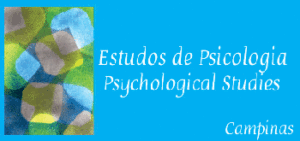Denise de Souza Fleith, psychologist, professor, and researcher of the Institute of Psychology at the University of Brasilia, Federal District, Brazil
 The article “The role of creativity in graduate education according to students and professors”, published in the journal Estudos de Psicologia (Campinas, Vol. 36), brings results focusing on the importance of creativity for society and for that level of education, the profile of creative professors and students, and the factors that promote or inhibit the development of creativity in graduate education, according to professors and students. To reach the results, interviews were conducted with six graduate students and six professors from one public and one private university from the Midwest, in three areas: Humanities, Exact Sciences and Life Sciences.
The article “The role of creativity in graduate education according to students and professors”, published in the journal Estudos de Psicologia (Campinas, Vol. 36), brings results focusing on the importance of creativity for society and for that level of education, the profile of creative professors and students, and the factors that promote or inhibit the development of creativity in graduate education, according to professors and students. To reach the results, interviews were conducted with six graduate students and six professors from one public and one private university from the Midwest, in three areas: Humanities, Exact Sciences and Life Sciences.
The participants acknowledged the relevance of creativity, whether in the academic sphere, in scientific production or even in everyday life. Among the factors promoting creativity in graduate education, it can be highlighted: the establishment of links between academic content and daily life, invitations to experts in the students’ areas of interest, students’ active engagement in the classes, different teaching strategies, flexible curriculum, interdisciplinarity, the use of humor, a professor support, a network of partnerships, and access to financial and material resources. On the other hand, the obstacles most mentioned by the participants were repetitive classes, bureaucracy to carry out projects, the evaluation system of graduate programs, publication model in journals, and lack of resources. Creative professors and students were characterized as motivated, questioning, and curious people.
In a country such as Brazil, where graduate education enrollment increases each year, identify ways to stimulate creativity at this level of education is fundamental for knowledge production, advances in research methods, techniques and tools, and training of new researchers. In view of the contemporary national and international scenario, marked by crises, dilemmas, contradictions and rapid changes, the ability to create has turned into a key part of individuals and societies. Creativity is not a luxury, a privilege of a few, but a necessity in the contemporary world (CSIKSZENTMIHALYI, 2006), an ability to be valued and developed, as it helps the individual to respond in a productive and appropriate way to the challenges and difficulties faced in both personal and professional life.
The research was carried out with the support of the National Council of Scientific and Technological Development (CNPq), in the form of a research productivity grant.
References
CSIKSZENTMIHALYI, M. Foreword: Developing creativity. IN: JACKSON, N. et al. (Eds.). Developing creativity in higher education. New York: Routledge, 2006. p. xvii-xx.
To read the article, access
FLEITH, D. S. The role of creativity in graduate education according to students and professors. Estud. psicol. (Campinas), v. 36, e180045, 2019. ISSN: 0103-166X [viewed 22 January 2019]. DOI: 10.1590/1982-0275201936e180045. Avaliable from: http://ref.scielo.org/nphmw4
External link
Estudos de Psicologia (Campinas) – ESTPSI: www.scielo.br/estpsi
Como citar este post [ISO 690/2010]:


















Recent Comments